
Урология - BPH. Prostatic cancer
.pdf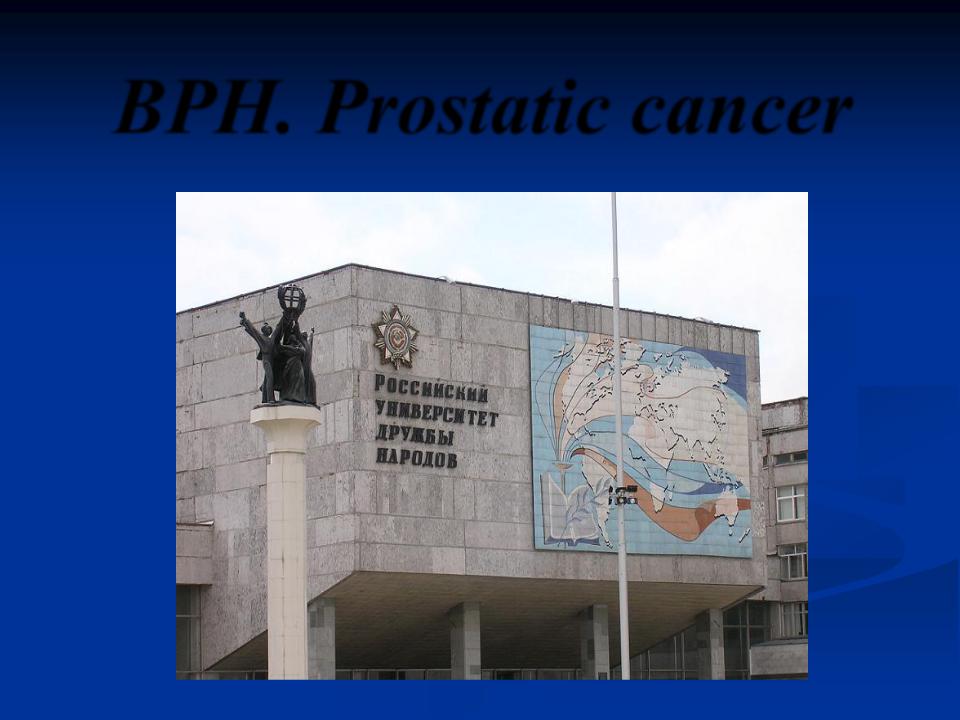
BPH. Prostatic cancer
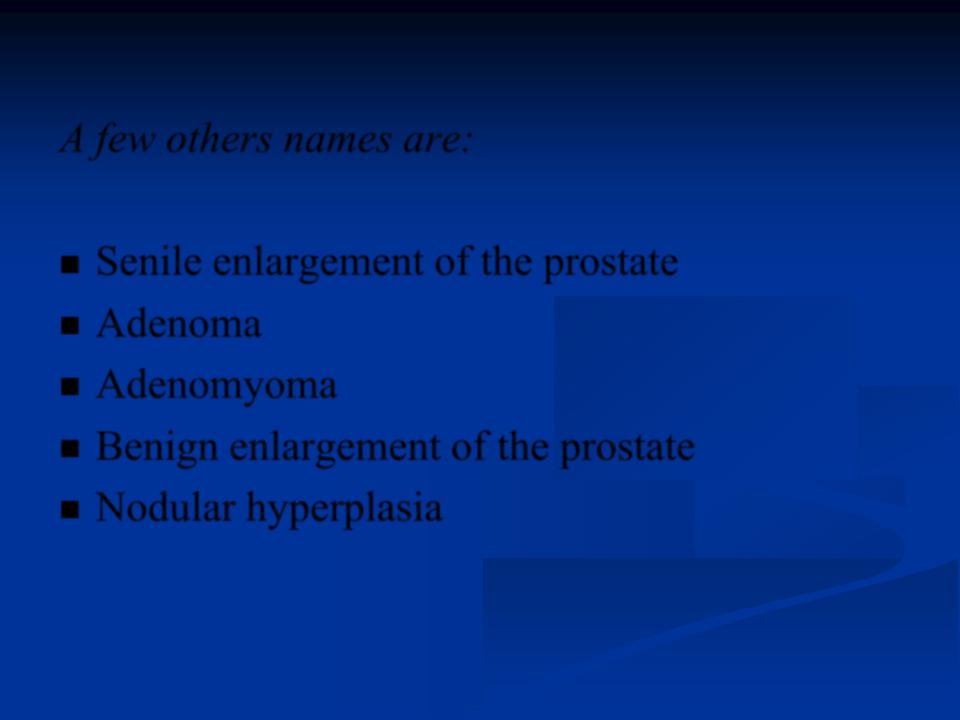
A few others names are:
Senile enlargement of the prostate
Adenoma
Adenomyoma
Benign enlargement of the prostate
Nodular hyperplasia
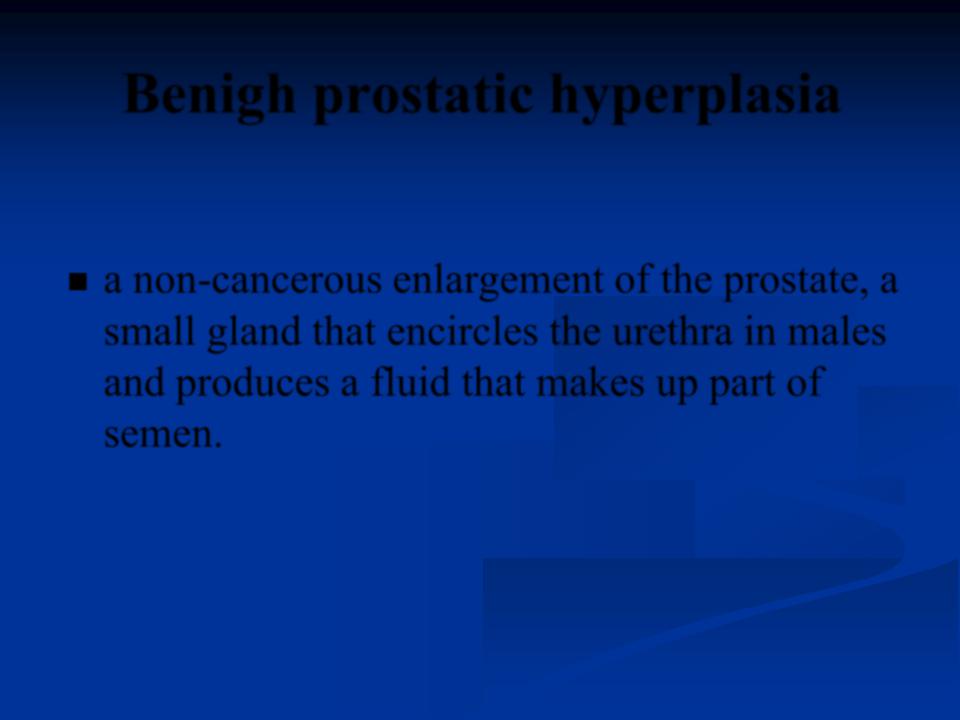
Benigh prostatic hyperplasia
a non-cancerous enlargement of the prostate, a small gland that encircles the urethra in males and produces a fluid that makes up part of semen.
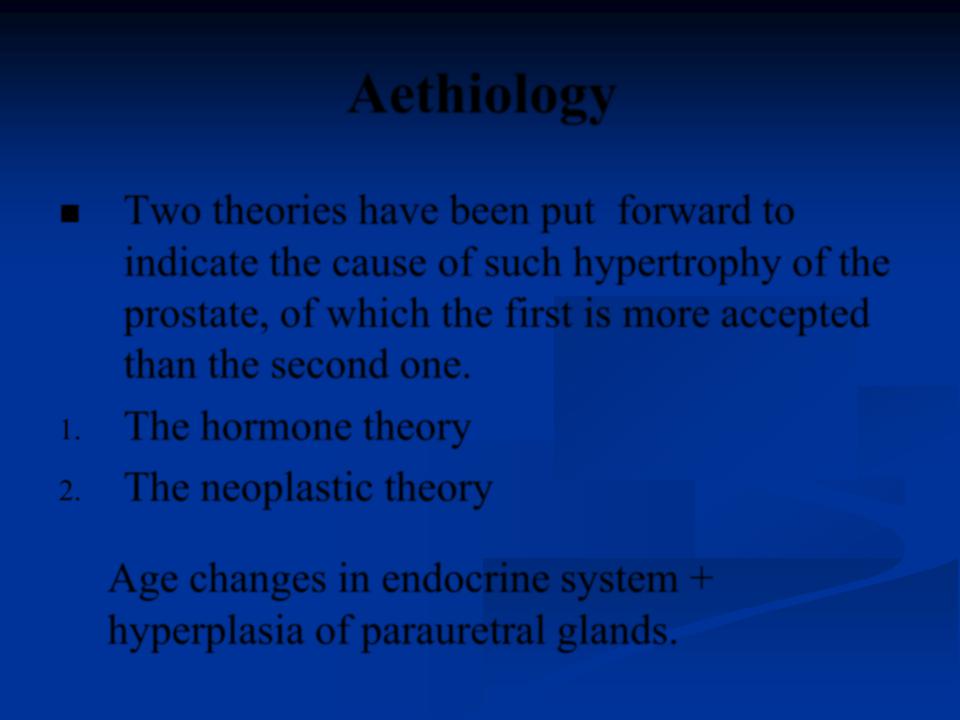
Aethiology
Two theories have been put forward to indicate the cause of such hypertrophy of the prostate, of which the first is more accepted than the second one.
1.The hormone theory
2.The neoplastic theory
Age changes in endocrine system + hyperplasia of parauretral glands.
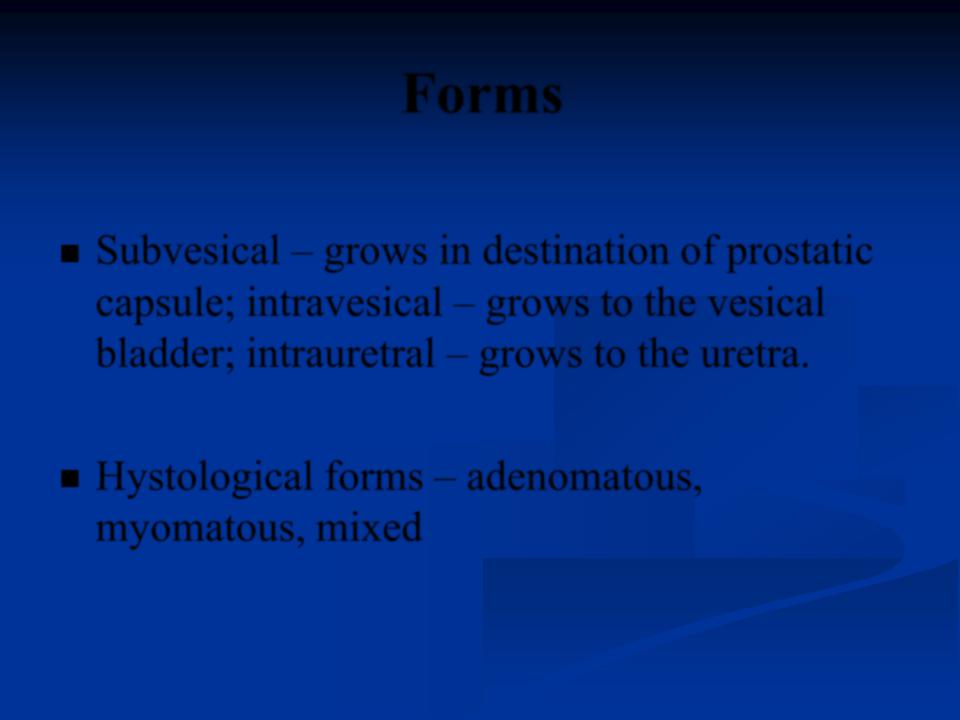
Forms
Subvesical – grows in destination of prostatic capsule; intravesical – grows to the vesical bladder; intrauretral – grows to the uretra.
Hystological forms – adenomatous, myomatous, mixed
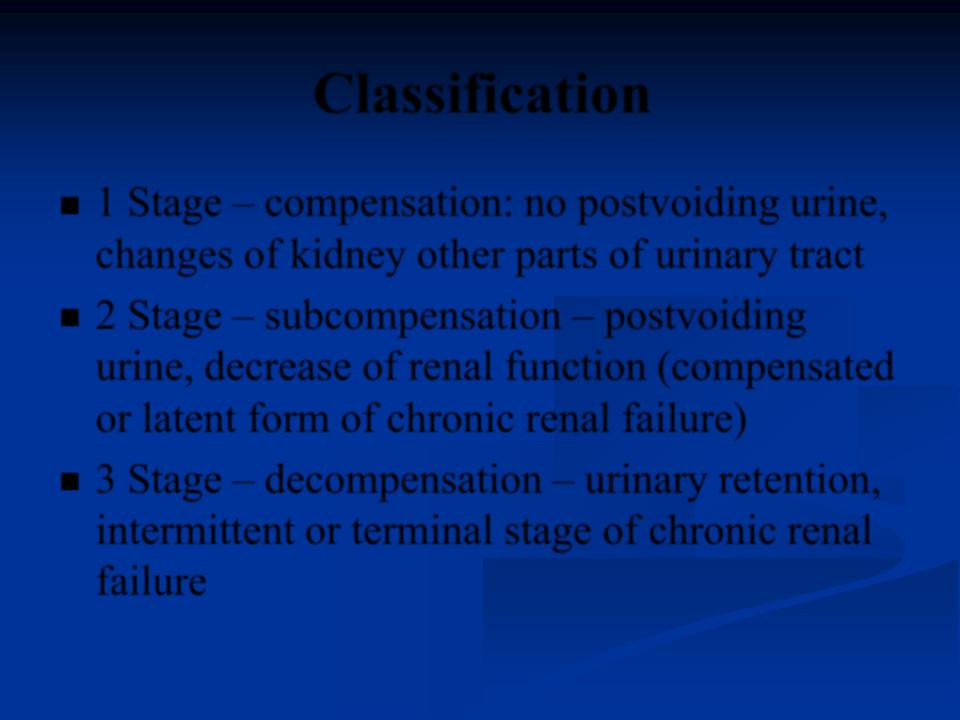
Classification
1 Stage – compensation: no postvoiding urine, changes of kidney other parts of urinary tract
2 Stage – subcompensation – postvoiding urine, decrease of renal function (compensated or latent form of chronic renal failure)
3 Stage – decompensation – urinary retention, intermittent or terminal stage of chronic renal failure
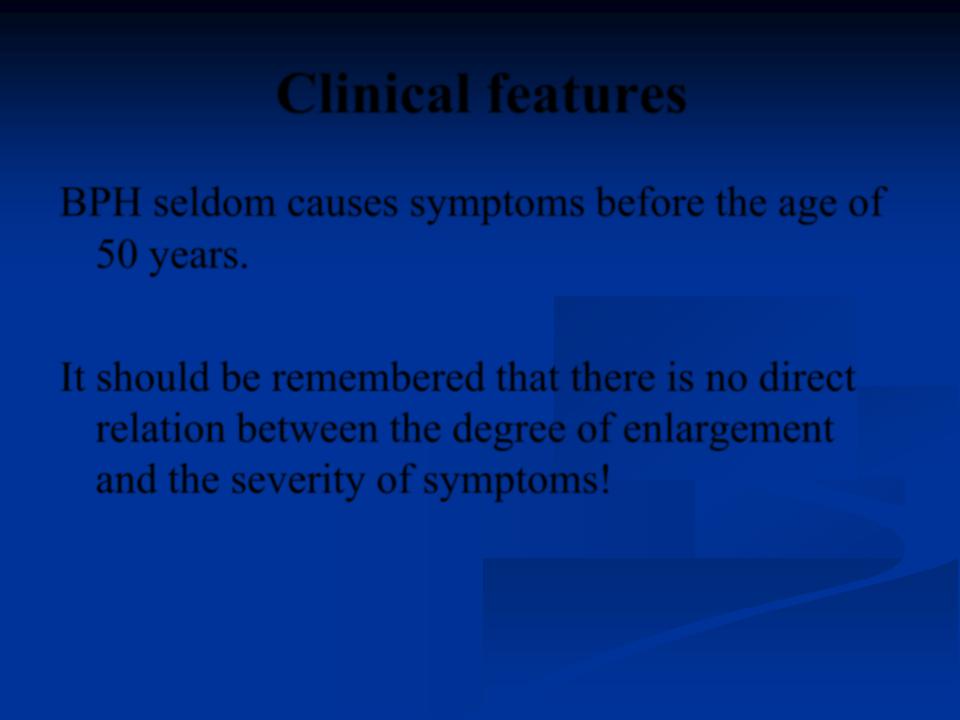
Clinical features
BPH seldom causes symptoms before the age of
50 years.
It should be remembered that there is no direct relation between the degree of enlargement and the severity of symptoms!
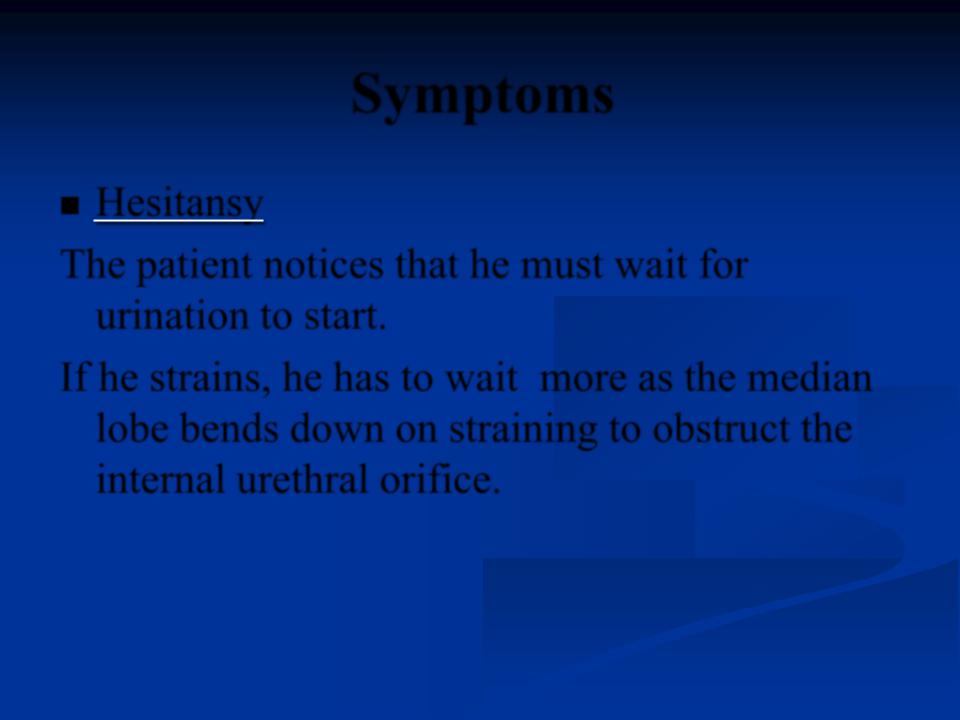
Symptoms
Hesitansy
The patient notices that he must wait for urination to start.
If he strains, he has to wait more as the median lobe bends down on straining to obstruct the internal urethral orifice.
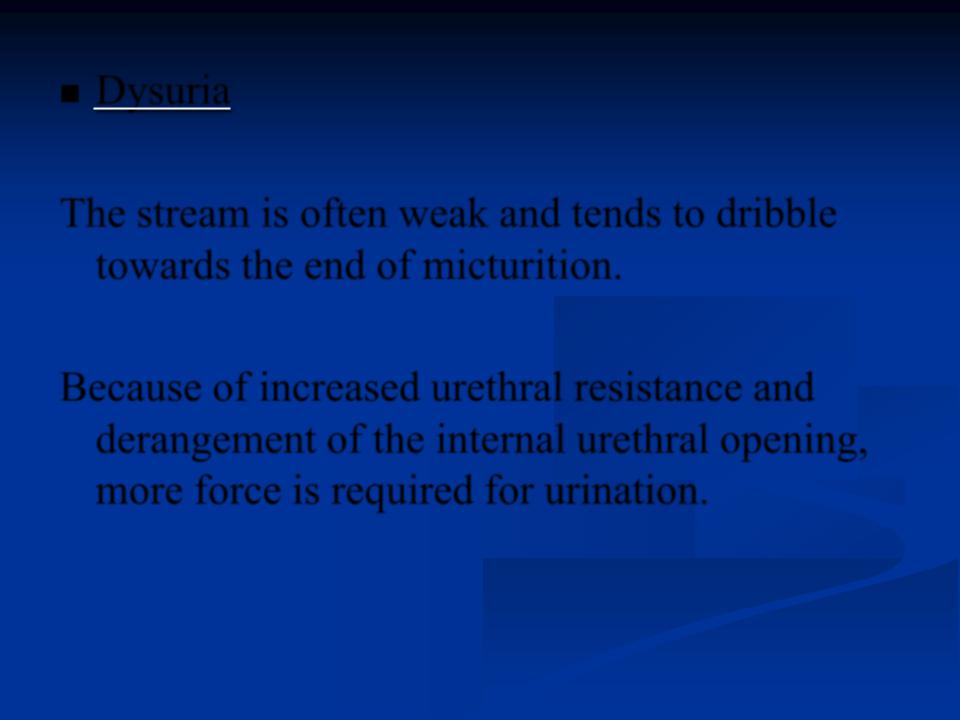
Dysuria
The stream is often weak and tends to dribble towards the end of micturition.
Because of increased urethral resistance and derangement of the internal urethral opening, more force is required for urination.
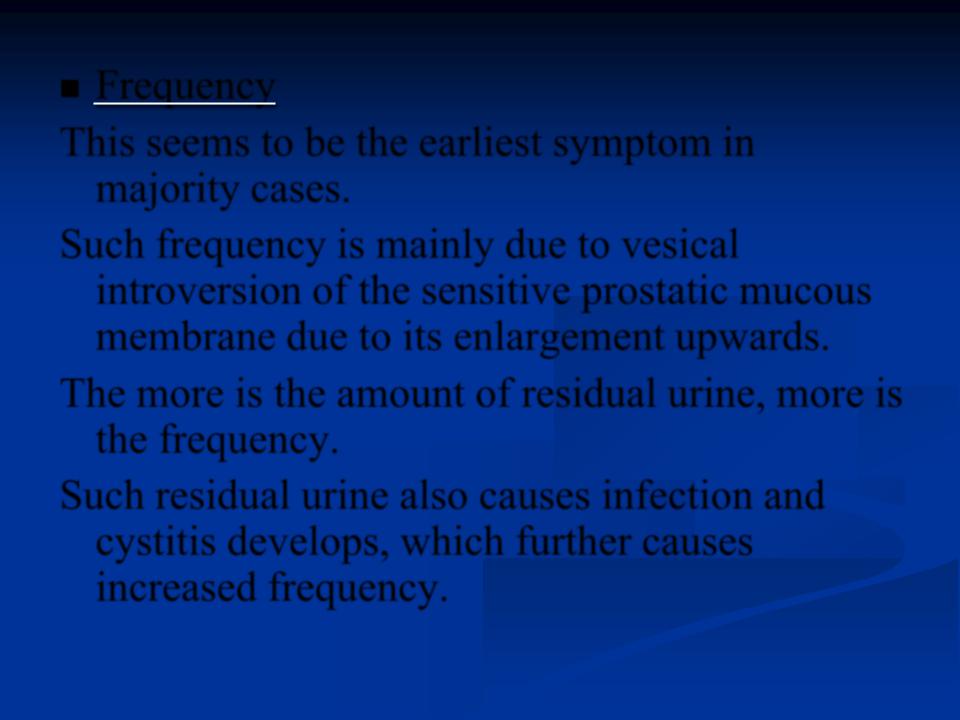
Frequency
This seems to be the earliest symptom in majority cases.
Such frequency is mainly due to vesical introversion of the sensitive prostatic mucous membrane due to its enlargement upwards.
The more is the amount of residual urine, more is the frequency.
Such residual urine also causes infection and cystitis develops, which further causes increased frequency.
